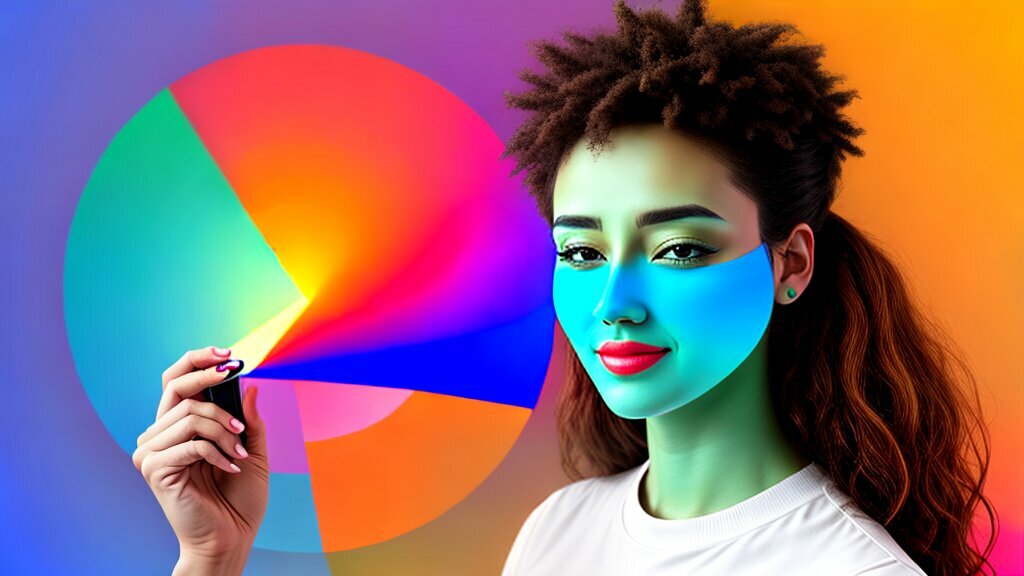Hello and welcome to our article on the potential of mobile apps in treating mood disorders. According to the National Institute of Mental Health, over 20 million Americans experience mood disorders each year, with depression being the most common. While traditional treatment options such as therapy and medication remain effective, the rise of technology has opened up new avenues for mental health care.
In this article, we will explore the benefits of using mobile apps for mood disorders, including personalized treatment options, accessible support, and tools for self-monitoring and self-care. We will also examine the effectiveness of therapy apps specifically designed to address mood disorders, such as cognitive behavioral therapy (CBT) apps, mindfulness apps, and mood tracking apps. Finally, we will discuss the role of mobile apps in improving mood disorders by promoting self-awareness, providing coping strategies, and enhancing overall well-being.
Key Takeaways:
- Mobile apps have the potential to improve mental health care for individuals with mood disorders.
- Benefits of mobile apps include personalized treatment, accessible support, and tools for self-monitoring and self-care.
- Therapy apps such as CBT apps, mindfulness apps, and mood tracking apps can be effective in addressing mood disorders.
- Mobile apps can improve overall well-being by promoting self-awareness, providing coping strategies, and enhancing communication with healthcare professionals.
The Benefits of Mobile Apps for Mood Disorders
At our fingertips, we have access to a wide variety of mobile apps designed to aid in the management and treatment of mood disorders. These apps offer numerous benefits to individuals seeking support and treatment options, including:
- Accessible and Convenient Support: Mobile apps offer immediate and 24/7 access to support tools and resources. This can be particularly helpful for individuals who may not have access to traditional care options or who require additional support outside of regular therapy sessions.
- Personalized Treatment Options: Many mood disorder apps offer tailored treatment plans and strategies based on an individual’s specific needs and preferences. This can help ensure that treatment is effective and sustainable.
In addition to these benefits, mobile apps also provide tools for self-monitoring and self-care. Many apps allow individuals to track their moods, set goals, and practice self-care activities such as meditation or journaling.
“Mobile apps offer immediate and 24/7 access to support tools and resources.”
While mobile apps cannot replace traditional mental health care, they can be a valuable addition to an individual’s treatment plan. By offering accessible and personalized support, mobile apps can help individuals with mood disorders better manage their symptoms and improve their overall well-being.
Exploring Therapy Apps for Mood Disorders
In our journey to discover how mobile apps can help treat mood disorders, we will now focus on therapy apps specifically designed for this purpose. These apps aim to provide evidence-based support and treatment options to individuals facing mental health challenges.
Cognitive Behavioral Therapy (CBT) Apps
Cognitive Behavioral Therapy (CBT) is a widely-used approach in psychotherapy for mood disorders. It focuses on changing negative thought patterns and behaviors that contribute to emotional distress. CBT apps provide users with various tools and techniques to identify and challenge negative thoughts, develop positive coping skills, and track progress over time. Examples of CBT apps include Moodfit and Woebot.
Mindfulness Apps
Mindfulness is a technique that involves paying attention to the present moment and accepting it without judgment. Mindfulness apps offer guided meditations, breathing exercises, and other mindfulness practices to help manage anxiety, stress, and depression. They can also be used to improve sleep quality and overall well-being. Examples of mindfulness apps include Calm and Headspace.
Mood Tracking Apps
Mood tracking apps allow users to record their mood, emotions, and behaviors over time. This can help identify triggers and patterns that contribute to mood fluctuations, and provide insights into the effectiveness of treatment strategies. Some mood tracking apps also offer personalized insights and recommendations based on user data. Examples of mood tracking apps include Daylio and MoodKit.
“Therapy apps can be a useful addition to traditional therapy or used as a stand-alone resource for individuals seeking mental health support.”
While therapy apps can be a useful addition to traditional therapy or used as a stand-alone resource for individuals seeking mental health support, it’s important to note that they should not replace professional treatment. They can, however, provide accessible and convenient support in between therapy sessions or during times of need.
Improving Mood Disorders with Mobile Apps
Mobile apps can play an important role in contributing to the improvement of mood disorders. By promoting self-awareness, providing coping strategies, facilitating communication with healthcare professionals, and enhancing overall well-being, app-based treatment can be a valuable tool in managing and treating mood disorders.
One way mobile apps can improve mood disorders is by promoting self-awareness. Many apps offer mood tracking and journaling features that allow individuals to reflect on their daily emotions and recognize patterns or triggers. This can help individuals better understand their moods and behaviors, and develop strategies for managing them.
Another benefit of mobile apps for mood disorders is the provision of coping strategies. Many apps offer exercises and techniques for managing anxiety, depression, and other mood disorders. These may include breathing exercises, guided meditations, or cognitive behavioral therapy (CBT) exercises. These strategies can be accessed quickly and conveniently, providing users with immediate relief during moments of distress.
Mobile apps can also facilitate communication with healthcare professionals. Some apps offer virtual therapy sessions or allow individuals to communicate with therapists remotely. This can be particularly useful for individuals who may have difficulty accessing in-person therapy due to geographic or financial barriers. Apps can also allow for more frequent communication between individuals and their healthcare providers, ensuring that treatment plans remain up-to-date and effective.
Finally, mobile apps can enhance overall well-being by providing valuable resources for self-care. From physical exercise challenges to guided mindfulness sessions, apps can help individuals build healthy habits that can reduce the severity or frequency of their mood disorder symptoms.
Overall, mobile apps have the potential to make a significant impact on the management and treatment of mood disorders. By promoting self-awareness, providing coping strategies, facilitating communication with healthcare professionals, and enhancing overall well-being, app-based treatment can be an important tool in improving mental health.
Conclusion
As we wrap up this article, we want to reiterate that mobile apps have immense potential in helping individuals with mood disorders. These apps offer accessible and convenient support, personalized treatment options, and tools for self-monitoring and self-care.
Therapy apps, in particular, provide a range of self-help solutions, such as cognitive behavioral therapy, mindfulness, and mood tracking, that are effective in managing mood disorders. Mobile apps also play a crucial role in promoting self-awareness, providing coping strategies, facilitating communication with healthcare professionals, and enhancing overall well-being.
Integrating technology into mental health care is becoming increasingly important, and we encourage individuals to explore the available mobile app options in their journey towards better mental well-being. With the right combination of traditional therapy and app-based treatment, mood disorders can be effectively managed and treated.
FAQ
Q: Can mobile apps help treat mood disorders?
A: Yes, mobile apps can be a valuable tool in treating mood disorders. They provide accessible support, personalized treatment options, and tools for self-monitoring and self-care.
Q: What are the benefits of mobile apps for mood disorders?
A: Mobile apps offer various benefits for individuals with mood disorders. They provide accessible and convenient support, personalized treatment options, and tools for self-monitoring and self-care.
Q: Are there therapy apps specifically designed for mood disorders?
A: Yes, there are therapy apps specifically designed to address mood disorders. These can include cognitive behavioral therapy (CBT) apps, mindfulness apps, and mood tracking apps.
Q: How can mobile apps improve mood disorders?
A: Mobile apps can contribute to the improvement of mood disorders by promoting self-awareness, providing coping strategies, facilitating communication with healthcare professionals, and enhancing overall well-being.
Q: What is the potential of mobile apps in treating mood disorders?
A: Mobile apps have the potential to play a significant role in treating mood disorders by providing accessible support and personalized treatment options. Integrating technology into mental health care can be a valuable step towards better mental well-being.





